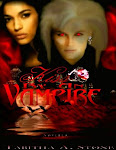Wednesday, August 10, 2011
Ethiopia Aid - Relief for the Children in Ethiopia
Posted by Tabitha A. Stone at 11:28 AM 0 comments
Wednesday, July 20, 2011
The Boys of the Lair Bring Sexy Back
My first fanvid. Warning- contains adult situations. Clips from The Lair seasons 1 & 2 - a gay vampire television series. All clips are property of here! TV. Music by Justin Timberlake feat. Timbaland - Sony BMG Music.
Posted by Tabitha A. Stone at 8:50 PM 0 comments
Wednesday, June 29, 2011
TOP BLACK MALE MODELS - 2010 (DANCE4DADDY)
MOST PROMISING URBAN MODELS 2010 CHOSEN BY DANCE4DADDY RECORDS - WHERE MUSIC MEETS FASHION...FIND OUT MORE AT
Posted by Tabitha A. Stone at 8:13 PM 0 comments
Beautiful Black Men
Celebrating Men Loving Men!!!Stephanie Mills- Comfort of a Man
Posted by Tabitha A. Stone at 8:02 PM 0 comments
Monday, June 6, 2011
African kings, queens to honour Madiba

African kings, queens to honour Madiba
Nkosi Phathekile Holomisa, president of the Congress of Traditional Leaders of South Africa, called Mandela the "great reconciler" between traditionalists and modernists.
Nov 3, 2009 7:36 PM | By DONNA BRYSON
Dancers clad in animal skins opened a royal ceremony today, a nod to tradition for the forward-thinking kings, queens and chiefs who jetted in to Johannesburg from across Africa to launch an institute they hope will expand their roles on the continent.
Share
King Tchiffi Zie Jean Gervais of Ivory Coast leaves after the launch of the Institute of African Royalty in Johannesburg, South Africa. Twenty-four traditional leaders from across the continent gathered on a Johannesburg university campus to launch the Institute of African Royalty, which they say will be a combination of think tank and lobby group.
Photograph by: Themba Hadebe
Credit: AP
They've been born and raised to care for the countries of their ancestors
The two dozen leaders from Morocco to Swaziland describe their new Institute of African Royalty as part think-tank on democracy and development, part lobby group to polish their image.
They say their model is anti-apartheid icon and former President Nelson Mandela, and plan to honor the man referred to during Tuesday's proceedings as "Prince Mandela" at a gala ceremony in Pretoria, the capital, later this week.
Sello Hatang, a spokesman for the anti-apartheid icon's office, said Mandela "feels honored to be respected by the traditional leadership."
Mandela's family claims the royal chieftaincy of Mvezo, a village in southeastern South Africa, and he spent part of his childhood in the court of a tribal regent being groomed, like his father before him, to advise kings.
"My later notions of leadership were profoundly influenced by observing the regent and his court," Mandela wrote in his autobiography, describing meetings called to discuss community matters such as coping with droughts, managing cattle and responding to new laws decreed by the colonial government.
"Everyone who wanted to speak did so. It was democracy in its purest form."
But as a young man, Mandela fled rural southeastern South Africa for Johannesburg to avoid a marriage arranged by the regent. During the apartheid years, Mandela clashed with his nephew, K.D.Matanzima.
Matanzima collaborated with the white government to lead one of the homelands set up to deny blacks citizenship, and then ruled it like a despot.
Mandela tried to persuade Matanzima to reform, and reached out to other chiefs, even "while many of my comrades thought we should disdain those leaders."
Nkosi Phathekile Holomisa, president of the Congress of Traditional Leaders of South Africa, called Mandela the "great reconciler" between traditionalists and modernists.
"During the era of colonialism and in our case apartheid, traditional leaders found themselves entangled in the systems and machinations of colonialists," said Holomisa, a chief from eastern South Africa whose independent group has been closely linked with Mandela's African National Congress.
Holomisa said traditional leaders have hesitated to criticize Africa's postcolonial governments. But as they watched the new leaders fail to eradicate poverty and entrench democracy, the old guard began to wonder whether it might have something to offer.
Daniel Masombuka, a 36-year-old city counselor who arrived today in the entourage of his relative, the Ndbele King Makhosonke II, said the spirit of listening and finding consensus that Mandela saw in the tribal meetings of his youth needed to be revived.
Masombuka, wearing a beaded collar piece and skins, has a degree in civil engineering, and is working on a master's in public administration. He is proof traditionalists "can do some things which are progressive," he said.
So is Joyce Mogale-Lefakane, a granddaughter of a king who ruled an area stretching to the north and west of what is now Johannesburg. She said once women were expected to stay silently at home while their men attended tribal councils, but "at this present moment, we, as women, we are raising our voices."
Queen Ama Nana Amissah III from Ghana delivered one of Tuesday's main speeches, declaring: "For every successful king, there is a successful queen."
Like Queen Ama or another guest at Tuesday's event, Best Kemigisa, the queen mother of Toro in Uganda, most African royals no longer have more than ceremonial roles. The territories over which their ancestors once ruled are now incorporated into larger states, or cut by national borders.
In South Africa, the National House of Traditional Leaders was established by law in 1997 to give chiefs a formal role as advisers to the president on customary law and other issues. In Uganda, President Yoweri Museveni recently restored the traditional kingdoms his predecessor banned in 1967, but has been adamant that kings keep out of politics.
But Swazi King Mswati III, represented by a brother, holds most of the power in his southern African nation of just over 1 million people, resisting calls for greater democracy.
In Morocco, head of state Mohammed VI is known as a modernist. Mina Metioui, who was in Johannesburg as Mohammed's representative and whose family has advised Moroccan kings for generations, said African kings can transcend politics to give their people a sense of continuity.
"They've been born and raised to care for the countries of their ancestors," she said. "It's a tree that's been planted, and it's there for centuries." - Sapa-AP
Posted by Tabitha A. Stone at 7:51 PM 0 comments
Labels: African kings, queens to honour Madiba
Tuesday, March 8, 2011
Delicious Romance From Cerise DeLand...: More food for the soul of your Valentine
Delicious Romance From Cerise DeLand...: More food for the soul of your Valentine
https://blogger.googleusercontent.com/img/b/R29vZ2xl/AVvXsEgh9WGWLl0RrhzwYFqXieNSyFDbQfNBA9ANUxJnszZpiPCbtWdJcvaKhMNNf9H0pkdmD4QYksfQx2cIIauf-3ccy5OQqhGBMmXG1sYAUvFDzlM6WsJBUHRNEJd_fQeO4d4ZJ48EEhTOTEc/s1600/Thefor.jpg
Posted by Tabitha A. Stone at 3:58 PM 0 comments
The Forbiddance Love

Queen Azalea is a beautiful woman and the much younger wife of a powerful African king. She longs for love and affection.Aeritas is a young and handsome musician. He is strongly attracted to Azalea.As King Donatus delves deeper and deeper into the dark arts, Azalea, his neglected and much younger wife, falls for a musician visiting their land. Dangerous under normal circumstances, King Donatus's dark associations could mean much worse than death for the pair.
Posted by Tabitha A. Stone at 3:54 PM 0 comments







